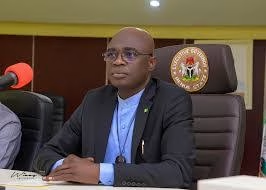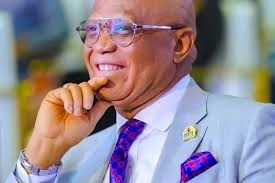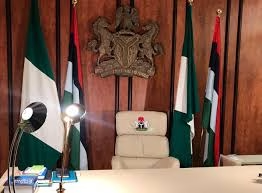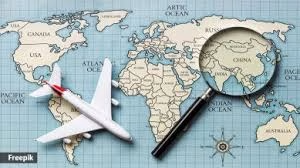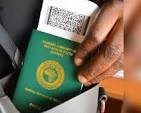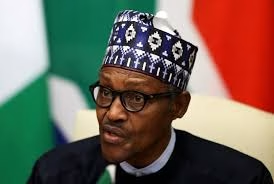
Muhammadu Buhari Has Died: Biography, Legacy & Why His Death Is a Political Earthquake
The death of Muhammadu Buhari, Nigeria’s former president and arguably one of the most polarizing figures in the country’s political history, marks the end of an era that was as complex as it was controversial. On July 13, 2025, Buhari died in London at the age of 82, after years of declining health and prolonged absences from public life and public view since 2023. His passing has not only shocked many Nigerians but has also rekindled fierce debates about his legacy, his leadership style, and the real impact of his policies on the nation he once ruled with an iron fist and later, with democratic legitimacy.
A former military general who seized power through a coup in 1983 and later returned to power as an elected civilian leader in 2015, Buhari’s political life was a blend of brute-force governance and messianic anti-corruption preaching. To some, he was the incorruptible father of national discipline; to others, he was an authoritarian relic from the past who stifled freedoms, crippled the economy, and treated Nigerians like errant children.
Now that he is gone, Nigeria must confront the hard truths about the man who dominated its political scene for decades. Was Buhari a patriotic leader misunderstood by the younger generation? Or was he a calculated power-holder whose rigid worldview left the country more divided than united? This article explores his rise, his rule, his flaws, and the far-reaching implications of his death both politically and symbolically in the volatile landscape of Nigerian democracy.

His body was flown back and buried in Daura with full military honors on July 15, marking the end of a complex era .
Buhari’s life was a dramatic narrative military strongman, anti-corruption icon, democratically elected president, and, finally, a figure whose death sparks renewed debate over what he built, broke, and left behind.
1. From Soldier to General: Early Life & Military Career
- Born on December 17, 1942 in Daura, Katsina State (The Washington Post, Statehouse).
- Joined the Nigerian Army in 1961; trained in the UK, India, and the US .
- Rose through ranks during the Civil War and became Military Governor of Northeast (1975), and later Petroleum Minister and Army Secretary .
- Seized power in a 1983 military coup, citing corruption and national dysfunction; he instigated a harsh “War Against Indiscipline”.
- In 1985, ousted by a coup led by Ibrahim Babangida and detained until 1988.
2. Democrat Turned Strongman: Biometrics of Civilian Rule
- After losing three elections (2003, 2007, 2011), Buhari finally succeeded in 2015 under APC, defeating Goodluck Jonathan the first incumbent president removed at the polls.
- Re-elected in 2019, he ran on his reputation for honesty, order, and Muslim-majority support, especially in Northern Nigeria .
- Called himself a “converted democrat” but often returned to austere military values, favoring discipline and order under the concept of “Buharism”.
3. The Promise & Problem of Anti-Corruption
- Upon assuming office, Buhari married rhetoric with action: repatriated looted funds, centralized revenue via TSA, and prosecuted over 600 figures for graft .
- Seen as a moral figure, even praised abroad U.S. Secretary of State John Kerry and the UK publicly supported his anti-graft stance .
- But critics lambasted the war as selective and political, targeting opposition more than political allies.
What Is Dictatorship? The Mask of Power
What’s the Full Meaning of a Political Statement?
4. Blood and Silence: Security, #EndSARS, and Human Rights
- Though he promised to defeat Boko Haram, violence persisted and even escalated, spreading to new regions and spawning ISWAP (AP News).
- The 2020 #EndSARS protests revealed harsh police and military reactions including the Zaria Shi’a massacre in 2015 and brutal crackdowns on peaceful demonstrators .
- Human rights groups noted his authoritarian tendencies: media censorship, internet shutdowns, and civil rights abuses .
5. Economy Under Siege: Recession, Inflation & “Baba Go Slow”
- The plunge in oil prices (2016) triggered a major recession marked by inflation, foreign exchange shortages, and stalled growth .
- Rigorous austerity and import curbs through “neo-Buharism” failed to revive multilateral economic growth.
- His frequent absence due to foreign medical visits (including a 100-day stay in London in 2017) earned him the nickname “absentee landlord”.
6. Death and National Reckoning
- Died on July 13, 2025 in London at 4:30 PM GMT after a long illness .
- Body repatriated; burial held in Daura on July 15 with full military honors, attended by President Tinubu, Senate leaders, and massive public turnout .
- Tinubu declared national mourning and public holiday for the burial day .

7. The Legacy Debate: Praise vs. Pain
| Issue | Praise (Supporters) | Criticisms (Detractors) |
|---|---|---|
| Anti-Corruption | Recovered state funds, prosecuted top officers | Seen as selective, politicized |
| Security | Strong stance against insurgents | Violence persisted, protests suppressed |
| Economy | WAI discipline, TSA revenue reforms | Recession, FX scarcity, high inflation |
| Democracy & Governance | Peaceful democratic transfer of power | Media suppression, foreign absences |
| Moral Authority | Seen as incorruptible, austere, spiritual | Viewed as authoritarian and emotionally distant (Reuters) |
8. Why His Death Matters Now
- APC recalibration: With Buhari gone, Tinubu finds greater room to reshape the party’s direction.
- National reflection: Nigeria must ask did discipline succeed, or did it suppress?
- Future politics: His death rekindles debate about authoritarian legacy and weak institutions in Nigeria.
Whatsnextng Thought: Controversy That Will Outlive Him
Former Nigerian President Muhammadu Buhari died on July 13, 2025, in London at age 82, after a long illness. A towering yet controversial figure, Buhari leaves behind a legacy that continues to divide opinion across Nigeria and the African continent.
From a military ruler in the 1980s to a two-term elected civilian president, Buhari’s journey was marked by his unwavering focus on discipline, anti-corruption, and national stability but often at the cost of civil liberties, economic prosperity, and human rights. He rose to power through a military coup in 1983, was overthrown in 1985, and returned as a “reformed democrat” to win the presidency in 2015 and 2019.
Buhari’s presidency was defined by a selective anti-corruption war, authoritarian governance, prolonged foreign medical leaves, and ineffective economic policies that saw Nigeria plunge into two recessions. His administration faced massive criticism during the #EndSARS protests, where state forces were accused of brutal crackdowns.
While his supporters praise him for being incorruptible and disciplined, his critics argue he fostered fear, censorship, and division. His death has reignited debates about Nigeria’s fragile democracy, the dangers of “strongman” leadership, and whether his legacy represents a path to progress or a warning from history.
Muhammadu Buhari’s death closes a chapter that redefined Nigeria’s political landscape from military rule to democratic comeback. He inspired millions with visions of clean government, discipline, and integrity but also sparked fears with authoritarian methods, economic stagnation, and deadly repression.
Now, Nigeria must decide: do we idolize his intentions or critique his outcomes? Will we repeat his mistakes under new rulers? Or will we build strong institutions, democratic resilience, and governance that honors his principles without his flaws?
One thing is clear: Buhari was both the cure and the disease. His death demands we learn which parts to keep and which to reject.
